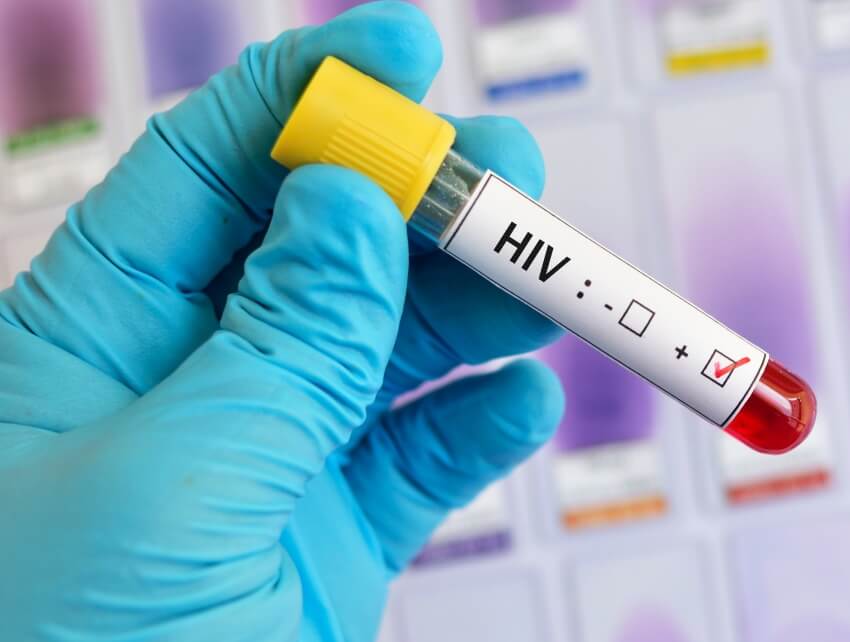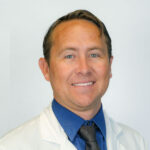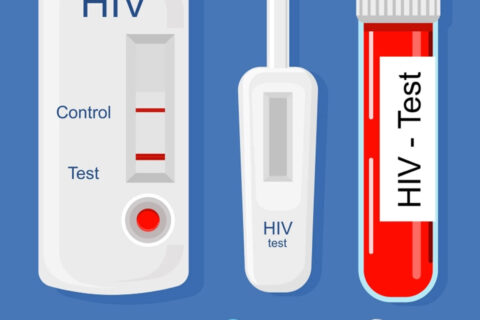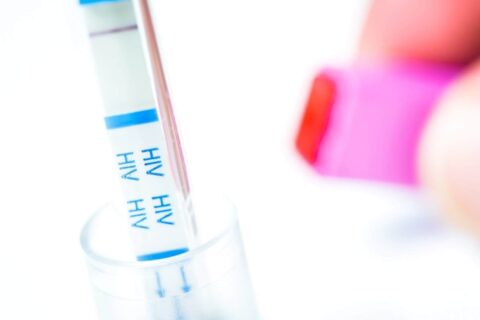What Are the Visible Signs that Someone Has HIV/AIDS?
An Introduction to HIV/AIDS
HIV (Human Immunodeficiency Virus) is a virus that attacks the immune system, specifically the CD4 cells (T cells), which are important for fighting infection. When HIV damages enough CD4 cells, the body can no longer fight infections and illnesses, which can lead to AIDS (Acquired Immune Deficiency Syndrome). AIDS is a serious, life-threatening illness caused by HIV.
There is no cure for HIV or AIDS, but there are treatments available that can prolong a person’s life. With treatment, many people with HIV and AIDS now live long, healthy lives. The sooner you start treatment the less your life expectancy is impacted. It’s important to get tested if you think you may be at risk for HIV and to start treatment as soon as possible if you are infected.
HIV/AIDS By the Numbers
According to the World Health Organization, there are currently 37.7 million people living with HIV/AIDS. The most affected region globally is Africa with approximately 1 in 25 adults diagnosed. Since the HIV epidemic began, in June of 1981, over 79 million have been infected with the HIV virus and 36 million have died of the virus.
HIV/AIDS Signs and Symptoms
There are a number of visible HIV/AIDS signs and symptoms that may indicate someone has been infected. Symptoms vary depending on the stage of the virus. It is important to note, that initially, you may have no symptoms at all.
Acute HIV Symptoms
- Fever
- Headache
- Muscle aches and joint pain
- Rash
- Sore throat and painful mouth sores
- Swollen lymph glands, mainly on the neck
- Diarrhea
- Weight loss
- Cough
- Night sweats
These symptoms can occur soon after infection or may not appear until the virus has progressed to AIDS.
Clinical Latent Infection Stage Symptoms
HIV can be found in the body and the body’s white blood cells in this stage of infection, but symptoms may or may not be present. This stage can be prolonged indefinitely.
Chronic Signs and Symptoms of HIV
Over time, the HIV virus grows and eliminates your immune cells leading to chronic symptoms:
- Fever
- Fatigue
- Swollen lymph nodes — often one of the first signs of HIV infection
- Diarrhea
- Weight loss
- Oral yeast infection (thrush)
- Shingles (herpes zoster)
- Pneumonia
AIDS Symptoms
Due to the effectiveness of HIV treatments, the number of people that move from HIV to AIDS has decreased over the years. Left untreated, HIV can evolve into AIDS in about 8 to 10 years, according to the Mayo Clinic. Symptoms of those suffering from AIDS can include all of the above and/or the following:
- Sweats
- Chills
- Recurring fever
- Chronic diarrhea
- Swollen lymph glands
- Persistent white spots or unusual lesions on your tongue or in your mouth
- Persistent, unexplained fatigue
- Weakness
- Weight loss
- Skin rashes or bumps
What to Do if You Suspect You Have HIV/AIDS?
If you believe that you may have been exposed to HIV, it is important to get tested as soon as possible. If your test comes back positive for HIV, it is important to seek treatment right away. With early diagnosis and treatment, people living with HIV can live long, healthy lives.
In addition to seeking medical treatment, there are other things you can do to stay healthy if you have HIV. These include taking medications as prescribed, eating a healthy diet, exercising regularly, and getting plenty of rest. It is also important to avoid risky behaviors, such as sharing needles or having unprotected sex.
If you have HIV, it is important to tell your sexual partners about your diagnosis so that they can get tested and treated if necessary. You should also let your healthcare provider know if you are pregnant or planning to become pregnant, as there are special considerations for pregnant women with HIV.
Why Early Diagnosis and Treatment is Important with HIV/AIDS?
One of the most important ways to fight HIV/AIDS is through early diagnosis and treatment. If you are infected with HIV, getting diagnosed and starting treatment as soon as possible can help you stay healthy and live a longer life. It can also help reduce the chance that you will spread HIV to other people. People living with HIV whose virus is undetectable, cannot transmit the virus to anyone. Hence, treatment for HIV is also prevention. There are many treatments for HIV/AIDS, and all of them work better if started early. Treatment can include medicines that fight the virus, along with counseling and support to help you manage your health. With early treatment, many people living with HIV/AIDS can now lead normal, healthy lives.
What Kinds of Tests Are Available for HIV/AIDS?
There are many ways to get tested for HIV, including at your doctor’s office, a community health center, or a local HIV testing site. You can also purchase an at-home HIV test kit.
How Easily is HIV/AIDS Spread?
According to the CDC, the HIV/AIDS virus can be transmitted through sexual contact, sharing needles, or from mother to child during pregnancy, childbirth, or breastfeeding. In general, the virus is more likely to be passed on during unprotected oral, anal, or vaginal sex (sex without a condom) or if someone has multiple partners. However, even with these risk factors, HIV/AIDS is not always easy to contract. One reason that HIV/AIDS is not always easily spread is that it does not survive well outside of the body. The virus only lives for a short time once it is exposed to the air, and it cannot reproduce on its own. This means that for HIV/AIDS to be transmitted, there must be direct contact between the virus and the person’s bloodstream or mucus membranes. Additionally, HIV/AIDS is not as easily spread through casual contact as some other viruses, such as the common cold or the flu.
How Can You Prevent HIV/AIDS?
There is no vaccine to prevent HIV infection, but there are ways to protect yourself from getting infected. To reduce your risk of getting HIV, you should:
- Always use condoms when having sex
- Never share needles or other drug equipment
- Get tested for HIV and other sexually transmitted infections (STIs) regularly
- Seek immediate medical attention if you think you may have been exposed to HIV.
What Progress Are We Making Against HIV/AIDS?
In recent years, there have been great strides made in the fight against HIV/AIDS. New treatments and therapies are being developed all the time, and we are getting closer and closer to finding a cure. However, there is still much work to be done.
Millions of people around the world are living with HIV/AIDS, and many more are at risk of contracting the virus.
Prevention tools such as pre-exposure prophylaxis or PrEP, post-exposure prophylaxis or PEP, and syringe services programs lower the individual risk of acquiring HIV significantly. National HIV efforts have moved us from a peak of 130,000 HIV infections annually in the U.S. in the mid-1980s to 34,800 in 2019, according to HIV.gov.
Where Can You Get Diagnosis and Treatment for HIV/AIDS?
If you have HIV or suspect you do, contact an infectious disease doctor for services. Brevard Health Alliance in Florida offers testing and treatment services at BHA locations. Contact us today to schedule an appointment! Getting tested allows you to uncover your status to prevent the accidental spread of the virus to others and will protect your current and future health.

















































































































































